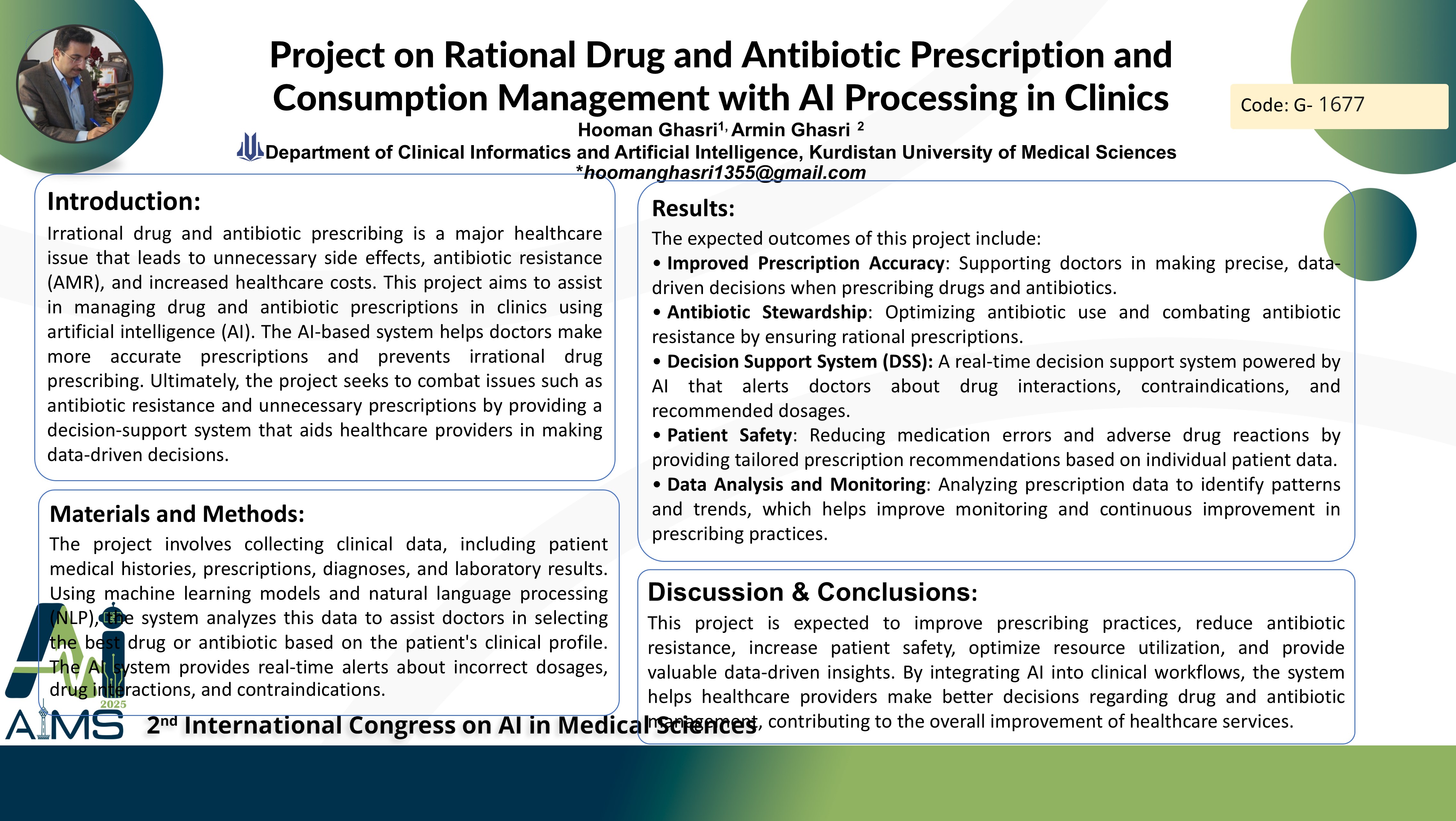Project on Rational Drug and Antibiotic Prescription and Consumption Management with Artificial Intelligence Processing in Clinics
Code: G-1677
Authors: آرمین قصری , Hooman Ghasri * ℗
Schedule: Not Scheduled!
Tag: Drug Discovery
Download: Download Poster
Abstract:
Abstract
Background and Aims: Irrational drug and antibiotic prescribing is a major healthcare issue that leads to unnecessary side effects, antibiotic resistance (AMR), and increased healthcare costs. This project aims to assist in managing drug and antibiotic prescriptions in clinics using artificial intelligence (AI). The AI-based system helps doctors make more accurate prescriptions and prevents irrational drug prescribing. Ultimately, the project seeks to combat issues such as antibiotic resistance and unnecessary prescriptions by providing a decision-support system that aids healthcare providers in making data-driven decisions. Method: The project involves collecting clinical data, including patient medical histories, prescriptions, diagnoses, and laboratory results. Using machine learning models and natural language processing (NLP), the system analyzes this data to assist doctors in selecting the best drug or antibiotic based on the patient's clinical profile. The AI system provides real-time alerts about incorrect dosages, drug interactions, and contraindications. By integrating the AI system with the existing workflow in clinics, the system enhances healthcare service quality, reduces costs, and increases patient safety. Results: The expected outcomes of this project include: • Improved Prescription Accuracy: Supporting doctors in making precise, data-driven decisions when prescribing drugs and antibiotics. • Antibiotic Stewardship: Optimizing antibiotic use and combating antibiotic resistance by ensuring rational prescriptions. • Decision Support System (DSS): A real-time decision support system powered by AI that alerts doctors about drug interactions, contraindications, and recommended dosages. • Patient Safety: Reducing medication errors and adverse drug reactions by providing tailored prescription recommendations based on individual patient data. • Data Analysis and Monitoring: Analyzing prescription data to identify patterns and trends, which helps improve monitoring and continuous improvement in prescribing practices. Conclusion: This project is expected to improve prescribing practices, reduce antibiotic resistance, increase patient safety, optimize resource utilization, and provide valuable data-driven insights. By integrating AI into clinical workflows, the system helps healthcare providers make better decisions regarding drug and antibiotic management, contributing to the overall improvement of healthcare services.
Keywords
Artificial Intelligence, Antibiotic Prescribing
